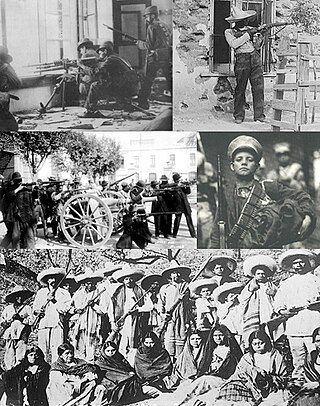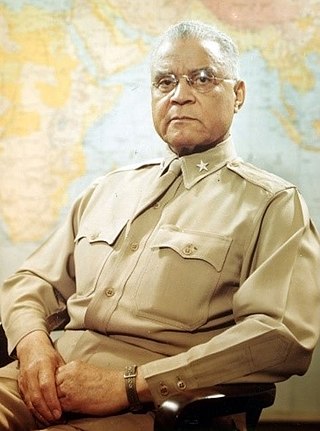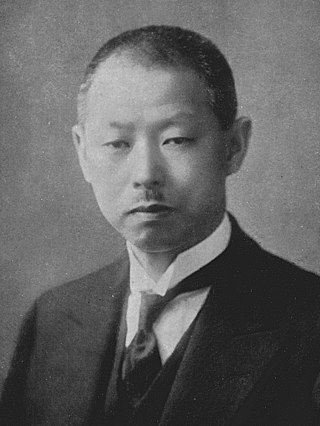Related Research Articles

The American Civil War was a civil war in the United States between the Union and the Confederacy, which had been formed by states that had seceded from the Union. The central cause of the war was the dispute over whether slavery would be permitted to expand into the western territories, leading to more slave states, or be prevented from doing so, which many believed would place slavery on a course of ultimate extinction.

Dwight David Eisenhower, nicknamed Ike, was an American military officer and statesman who served as the 34th president of the United States from 1953 to 1961. During World War II, he was Supreme Commander of the Allied Expeditionary Force in Europe and achieved the five-star rank as General of the Army. Eisenhower planned and supervised two of the most consequential military campaigns of World War II: Operation Torch in the North Africa campaign in 1942–1943 and the invasion of Normandy in 1944.

Charles Gates Dawes was an American banker, general, diplomat, musician, composer, and Republican politician who was the 30th vice president of the United States from 1925 to 1929 under Calvin Coolidge. He was a co-recipient of the Nobel Peace Prize in 1925 for his work on the Dawes Plan for World War I reparations.

The Mexican Revolution was an extended sequence of armed regional conflicts in Mexico from 20 November 1910 to 1 December 1920. It has been called "the defining event of modern Mexican history". It resulted in the destruction of the Federal Army and its replacement by a revolutionary army, and the transformation of Mexican culture and government. The northern Constitutionalist faction prevailed on the battlefield and drafted the present-day Constitution of Mexico, which aimed to create a strong central government. Revolutionary generals held power from 1920 to 1940. The revolutionary conflict was primarily a civil war, but foreign powers, having important economic and strategic interests in Mexico, figured in the outcome of Mexico's power struggles; the U.S. involvement was particularly high. The conflict led to the deaths of around one million people, mostly noncombatants.
The expression military–industrial complex (MIC) describes the relationship between a country's military and the defense industry that supplies it, seen together as a vested interest which influences public policy. A driving factor behind the relationship between the military and the defense-minded corporations is that both sides benefit—one side from obtaining weapons, and the other from being paid to supply them. The term is most often used in reference to the system behind the armed forces of the United States, where the relationship is most prevalent due to close links among defense contractors, the Pentagon, and politicians. The expression gained popularity after a warning of the relationship's detrimental effects, in the farewell address of U.S. President Dwight D. Eisenhower on January 17, 1961.

The Pullman Strike was two interrelated strikes in 1894 that shaped national labor policy in the United States during a period of deep economic depression. First came a strike by the American Railway Union (ARU) against the Pullman factory in Chicago in spring 1894. When it failed, the ARU launched a national boycott against all trains that carried Pullman passenger cars. The nationwide railroad boycott that lasted from May 11 to July 20, 1894, was a turning point for US labor law. It pitted the American Railway Union (ARU) against the Pullman Company, the main railroads, the main labor unions, and the federal government of the United States under President Grover Cleveland. The strike and boycott shut down much of the nation's freight and passenger traffic west of Detroit, Michigan. The conflict began in Chicago, on May 11 when nearly 4,000 factory employees of the Pullman Company began a wildcat strike in response to recent reductions in wages. Most of the factory workers who built Pullman cars lived in the "company town" of Pullman just outside of Chicago. Jennie Curtis who lived in Pullman was president of seamstress union ARU LOCAL 269 gave a speech at the ARU convention urging people to strike. It was designed as a model community by its namesake founder and owner George Pullman.

The Army National Guard (ARNG), in conjunction with the Air National Guard, is an organized militia force and a federal military reserve force of the United States Army. They are simultaneously part of two different organizations: the ARNG of each state, most territories, and the District of Columbia, as well as the federal ARNG, as part of the National Guard as a whole. It is divided into subordinate units stationed in each state or insular area, responsible to their respective governors or other head-of-government.

The International Military Tribunal for the Far East (IMTFE), also known as the Tokyo Trial and the Tokyo War Crimes Tribunal, was a military trial convened on 29 April 1946 to try leaders of the Empire of Japan for their crimes against peace, conventional war crimes, and crimes against humanity, leading up to and during the Second World War. The IMTFE was modeled after the International Military Tribunal (IMT) at Nuremberg, Germany, which prosecuted the leaders of Nazi Germany for their war crimes, crimes against peace, and crimes against humanity.

Elihu Benjamin Washburne was an American politician and diplomat. A member of the Washburn family, which played a prominent role in the early formation of the United States Republican Party, he served as a congressman from Illinois before and during the American Civil War. He was a political ally of President Abraham Lincoln and General Ulysses S. Grant. During Grant's administration, Washburne was the 25th United States Secretary of State briefly in 1869, and was the United States Minister to France from 1869 to 1877.

Benjamin Oliver Davis Sr. was a career officer in the United States Army. One of the few black officers in an era when American society was largely segregated, in 1940 he was promoted to brigadier general, the army's first African American general officer.

Yoshisuke Aikawa was a Japanese entrepreneur, businessman, and politician, noteworthy as the founder and first president of the Nissan zaibatsu (1931–1945), one of Japan's most powerful business conglomerates around the time of the Second World War.

During the American Civil War, the Commonwealth of Pennsylvania played a critical role in the Union, providing a substantial supply of military personnel, equipment, and leadership to the Federal government. The state raised over 360,000 soldiers for the Federal armies. It served as a significant source of artillery guns, small arms, ammunition, armor for the new revolutionary style of ironclad types of gunboats for the rapidly expanding United States Navy, and food supplies. The Phoenixville Iron Company by itself produced well over 1,000 cannons, and the Frankford Arsenal was a major supply depot.

The attack on Camp Holloway occurred during the early hours of February 7, 1965, in the early stages of the Vietnam War. Camp Holloway was a helicopter facility constructed by the United States Army near Pleiku in 1962. It was built to support the operations of Free World Military Forces in the Central Highlands of South Vietnam.

A peace movement is a social movement which seeks to achieve ideals such as the ending of a particular war or minimizing inter-human violence in a particular place or situation. They are often linked to the goal of achieving world peace. Some of the methods used to achieve these goals include advocacy of pacifism, nonviolent resistance, diplomacy, boycotts, peace camps, ethical consumerism, supporting anti-war political candidates, supporting legislation to remove profits from government contracts to the military–industrial complex, banning guns, creating tools for open government and transparency, direct democracy, supporting whistleblowers who expose war crimes or conspiracies to create wars, demonstrations, and political lobbying. The political cooperative is an example of an organization which seeks to merge all peace-movement and green organizations; they may have diverse goals, but have the common ideal of peace and humane sustainability. A concern of some peace activists is the challenge of attaining peace when those against peace often use violence as their means of communication and empowerment.

The Council of National Defense was a United States organization formed during World War I to coordinate resources and industry in support of the war effort, including the coordination of transportation, industrial and farm production, financial support for the war, and public morale.
The 1974 Nigerien coup d'état was a largely bloodless military insurrection which overthrew the first postcolonial government of Niger. The government that followed, while plagued by coup attempts of its own, survived until 1991.

General of the Armies John Joseph Pershing, nicknamed "Black Jack", was a senior United States Army officer. He served most famously as the commander of the American Expeditionary Forces (AEF) during World War I from 1917 to 1920. In addition to leading the AEF to victory in World War I, Pershing notably served as a mentor to many in the generation of generals who led the United States Army during World War II, including George C. Marshall, Dwight D. Eisenhower, Omar Bradley, Lesley J. McNair, George S. Patton and Douglas MacArthur.

The Campaign for Nuclear Disarmament (CND) is an organisation that advocates unilateral nuclear disarmament by the United Kingdom, international nuclear disarmament and tighter international arms regulation through agreements such as the Nuclear Non-Proliferation Treaty. It opposes military action that may result in the use of nuclear, chemical or biological weapons, and the building of nuclear power stations in the UK.

The 2015 Burkina Faso coup d'état attempt was a failed coup d'état launched on 16 September 2015 in Burkina Faso, when members of the Regiment of Presidential Security (RSP) – a controversial autonomous military unit, formed under President Blaise Compaoré – detained the country's government. Among those detained were the transitional President Michel Kafando, Prime Minister Yacouba Isaac Zida, and numerous members of the cabinet. This transitional government was formed in the wake of the 2014 Burkinabé uprising, when a popular movement overthrew the long-time president Compaoré, who himself had come to power in a 1987 coup against the left-wing leader Thomas Sankara. New general elections were planned for 11 October 2015.
References
- ↑ Wood, B. Dan; Jordan, Soren (2017-08-18). Party Polarization in America: The War Over Two Social Contracts. Cambridge University Press. p. 75. ISBN 978-1-108-17121-2.
- ↑ Glenn, Garrard (1918). The Army and the Law. Columbia University Press. p. 143.